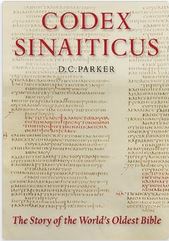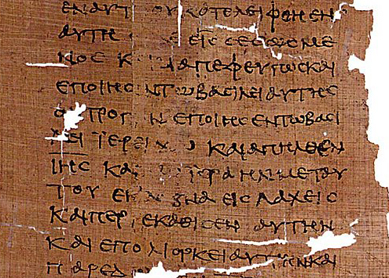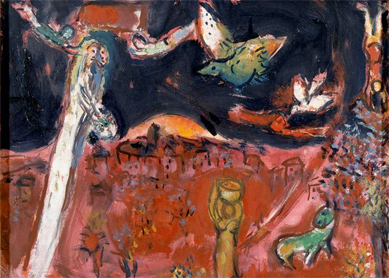What do the philosopher-leader of an ancient Jewish community, an enigmatic Christian teacher, and a polymath priest have in common? Philo (20 BC-45 C.E.) spent his whole life in Alexandria, Clement (150-215 C.E.) arrived there in an unknown period, and Origen (185-254 C.E.)—though a native—was expelled from the city after a confrontation with the local bishop.
But in addition to residing in Alexandria, all three read the Hebrew Bible in the Greek version called the Septuagint, and they all interpreted it through a procedure called allegory. Philo, Clement, and Origen relied upon the extensive knowledge preserved in the Library of Alexandria to read the Bible allegorically, but while their methods were similar, their aims were different.
An allegorical reading is based on the distinction made by the Greek philosopher Plato (4th century B.C.E.) between the sensible world, which human beings perceive through their bodily senses, and the intelligible world, the more important realm of ideas, which they grasp intellectually. In allegorical reading, the sensory corresponds to the immediate, literal, or historical meaning of the text, and the intellectual to its deeper, symbolic, or spiritual contents.
Philo was a devout Jew who used allegorical readings to show his fellow citizens that the biblical commands had a second, immaterial layer of meaning: for instance, a Jew’s obedience to certain dietary restrictions, as expressed in
In Alexandria, the refined intellectual and teacher Clement met his master Pantaenus, who introduced him to Christianity as the highest form of philosophy. Clement had read widely in history, philosophy, and poetry, both pagan and Jewish. The allegorical reading of biblical texts helped him to connect all these forms of human wisdom to the divine wisdom. Clement saw the Bible as the roadmap for this connection, which the human teacher could discover under the guidance of the divine teacher, Christ. For instance, he interprets the inscription on the Asclepius’s temple in Epidaurus in the light of Paul’s First Epistle to
Origen was the greatest biblical scholar of ancient Christianity, known for his attention to the text of the Bible. Origen’s impressive edition of the Old Testament, the Hexapla (meaning “six columns”) contained the Hebrew text and five Greek translations, of which the Septuagint was paramount. Origen loved to explore all the possible meanings of each passage of the Scriptures, from the literal to the infinite variety of spiritual significances (covering such topics as morals, mysticism, angelology, and theology). In Origen’s view, the Bible is another form of incarnation of Jesus Christ, the Divine Word: the literal meaning corresponds to his humanity, while the allegorical reading opens up the mysteries of his divinity to the faithful (First Principles 4.1.6).
Philo, Clement, and Origen did not gain long-lasting success in Alexandria. Origen was expelled by the bishop Demetrius, Clement fled during a wave of persecution, and Philo was rejected along with the Septuagint by later Judaism, since both seemed too ambiguously close to Christianity. However, their works survived in the great library assembled by Origen in Caesarea Maritima, not far from Jerusalem, still the core of Jewish and Christian history.
Bibliography
- Dawson, David. Allegorical Readers and Cultural Revision in Ancient Alexandria. Berkeley: University of California Press, 1992.
- Kannengiesser, Charles. Handbook of Patristic Exegesis: The Bible in Ancient Christianity. Leiden: Brill, 2004. Pages 507-515 (Clement) and 536-574 (Origen, by Hermann J. Vogt).
- Runia, David T. Philo in Early Christian Literature: A Survey. Minneapolis: Fortress Press, 1993.





